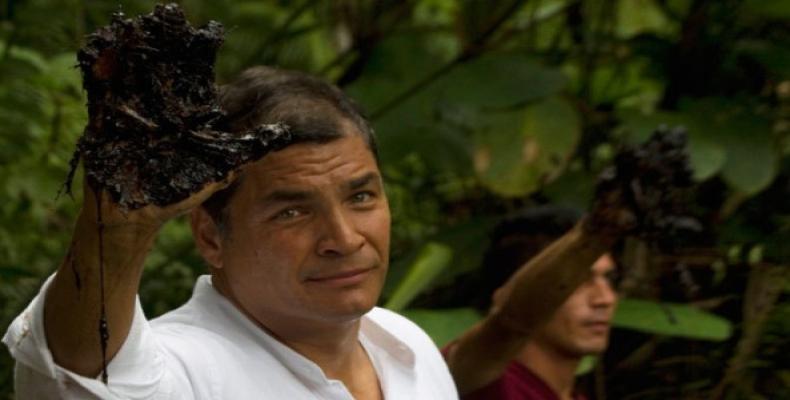Quito, April 03 (teleSUR-RHC) On Thursday, Indigenous leaders in the Ecuadorean amazon denounced the presence of agents from the Chevron oil company in their territories, whom they believe were there to sow divisions within their communities.
Rural workers and indigenous peoples are currently facing off with Chevron in court, seeking to collect $9.5 billion in compensation for environmental damage caused by the company.
The International Court of Justice (ICJ) ruled earlier this month that a prior ruling by an Ecuadorean court that fined the U.S.-based oil company Chevron should be upheld.
Humberto Piaguaje, a coordinator with the Union of Persons Affected by Texaco Operations (UDAPT), said the agents from the U.S. oil-giant were suspected of offering money or benefits to community members in exchange for their signature on a form.
“In the past there was a similar case, where the people were lied to, they would offer them money and they would ask them to sign a document, which was then used against these very same communities,” said Piaguaje.
His comments were echoed by Luz Casangua, the president of affected persons from Campo Joya de los Sachas. “In 1993 a group of persons also came, pretending to be technical experts, first they said they were going to look at the contamination and we showed them, then they started to ask us how much we wanted to end the case,” said Sachas.
“We realized they were infiltrators and we got organized so that they could not enter (our) communities.” Pablo Fajardo, the lawyer representing the affected communities, said that the fact Chevron was up to its old tricks was a sign of desperation and that the company's “lies are being brought to light.”
Despite the ruling by the Ecuadorean Supreme Court and the CIJ, Chevron refuses to pay. Because pulled out its assets from Ecuador, the plaintiffs are seeking to seize the company's assets in other jurisdictions. The Supreme Court of Canada heard arguments in December 2014 and is set to decide soon if Canada is an appropriate jurisdiction for the case.


